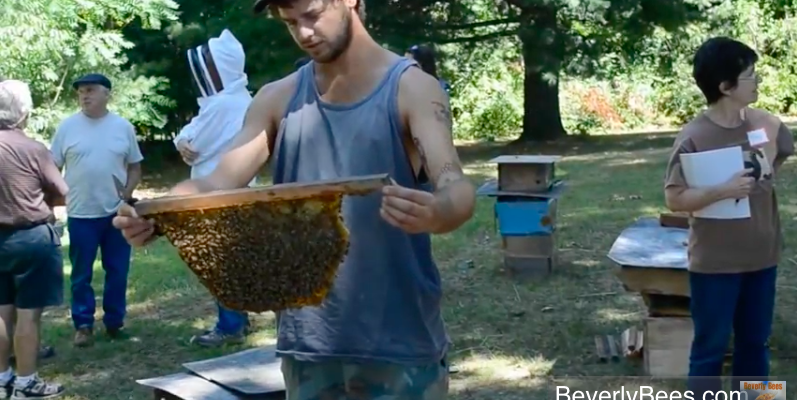Friends, if you ordered a new queen from me in 2016, Sam Comfort from Anarchy Apiaries is the guy who raised her. I couldn’t be more pleased his queens. And with Sam…who is a delight.
If you don’t raise your own queens from local surviving stock, and if your bees overwinter some long, cold months, I suggest you get your queens from Sam. Or, if you’re near Cincinnati, contact me. :) I probably have a few of Sam’s queens on hand for you.
But it’s not hard to rear your own queens. You might screw it up initially, but think of what all you’ll learn. And it’s not the end of the world if you don’t immediately succeed…then again, you just might. What fun that would be, yes? And eventually, you will. :)

